Stormont talks: Julian Smith 'holding NI to ransom' with deal
- Published
- comments
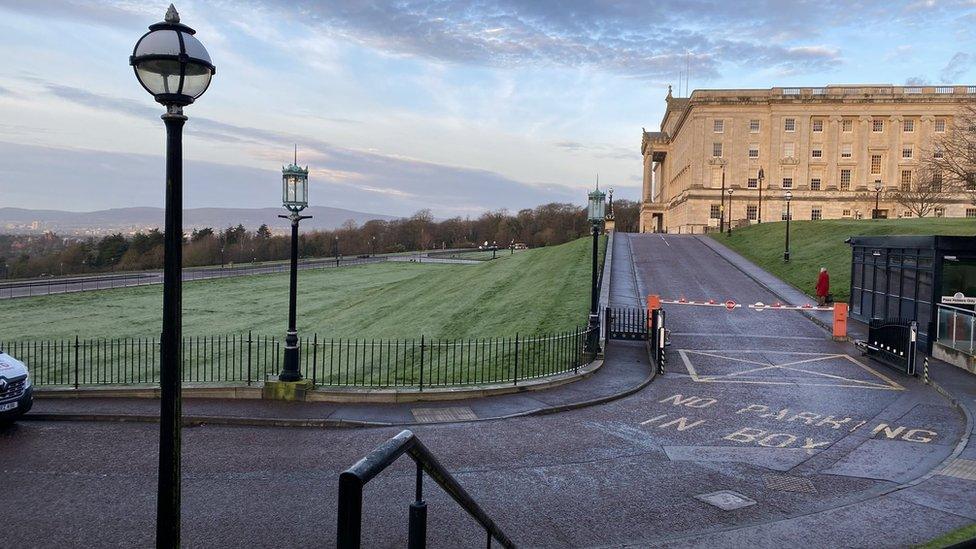
Does a new dawn beckon for the Stormont institutions?
NI Secretary Julian Smith is "holding the people of Northern Ireland to ransom", the union Unison has said.
It follows comments he made to the BBC that extra money for workers would be withheld in the absence of a deal.
The British and Irish governments have published a draft deal, external to restore the executive after three years of political deadlock at Stormont.
About 9,000 health workers are currently on strike over pay and staffing levels in NI.
"There is no money coming unless the executive gets up and running," Mr Smith told BBC Radio Ulster's Good Morning Ulster programme.
"I want to focus on public services, they need to get back to work," he said.
Stormont talks: Julian Smith warns that financial package depends on an agreed deal
Patricia McKeown, from Unison, told the BBC that the dispute over health workers' pay could be "resolved immediately".
"That's about holding the people of Northern Ireland at ransom," she said.
"It's about really infringing on their human rights, health workers and patients alike."
Assembly recall
Mr Smith and Tánaiste (Irish Deputy Prime Minister) Simon Coveney made the announcement of a draft deal at a media conference at Stormont on Thursday evening.
The Northern Ireland Secretary had asked the Stormont speaker, Robin Newton, to arrange an urgent meeting of the assembly for Friday.
However, on Friday morning, Mr Newton said the Northern Ireland Assembly will only be recalled if the political parties agree on a potential deal to restore power sharing.
DUP leader Arlene Foster has said that the proposals are "not perfect" but offer a basis to move forward.
Sinn Féin is examining the draft deal at internal party meetings on Friday.
If you are reading this page on the BBC News app, you will need to visit the mobile version of the BBC website to submit your question on this topic.
Speaking to BBC News NI, Mr Smith said politicians have "decisions to make but now is the time".
If agreed, the deal, entitled New Decade, New Approach, could see the assembly reconvene on Friday. Thursday marked three years to the day since Stormont collapsed.
An assembly spokesperson said it was the speaker's responsibility to ensure arrangements are in place for a sitting to facilitate the appointment of an executive.
She added: "It is not for the speaker to react to political speculation and he has been clear that whether or not the deadline of 13 January can be met is a matter entirely for parties.
"While the Secretary of State for Northern Ireland has requested that the speaker call a sitting of the assembly, the process of doing so remains one for the speaker to undertake in consultation with the parties."
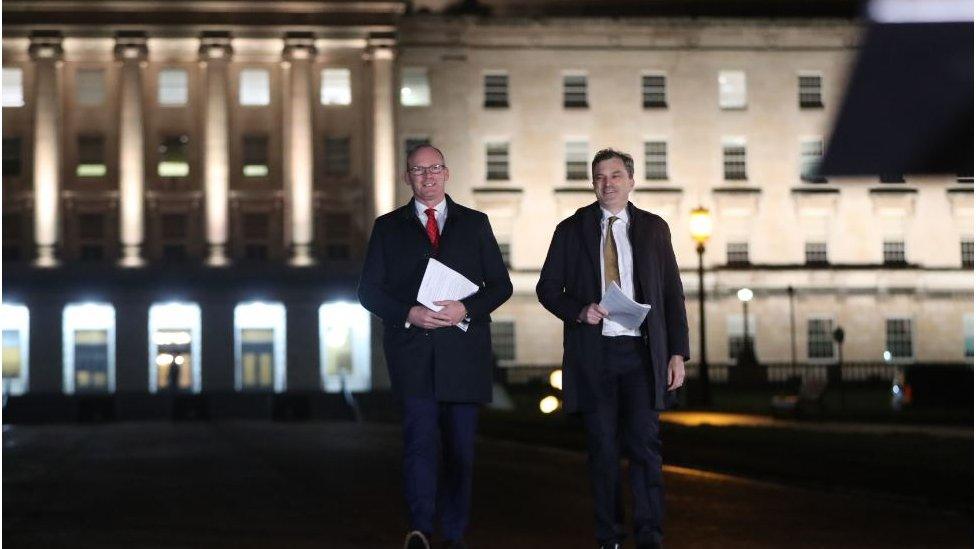
Simon Coveney and Julian Smith held a joint media conference on Thursday night
The statement added: "The speed and timing of any sitting therefore depends entirely on when the speaker hears positively from the parties."
'An entirely different construct'
Speaking on the BBC's Good Morning Ulster programme on Friday, Mrs Foster said she was "hopeful" that the DUP and Sinn Féin can restore the executive.
The DUP leader said she had spoken to Michelle O'Neill on Thursday evening.
"Discussions will continue throughout the day and hopefully we can get to a place where we can have the executive up and running again," she said.
Two key sticking points in the Stormont talks were around an Irish language act and the petition of concern.
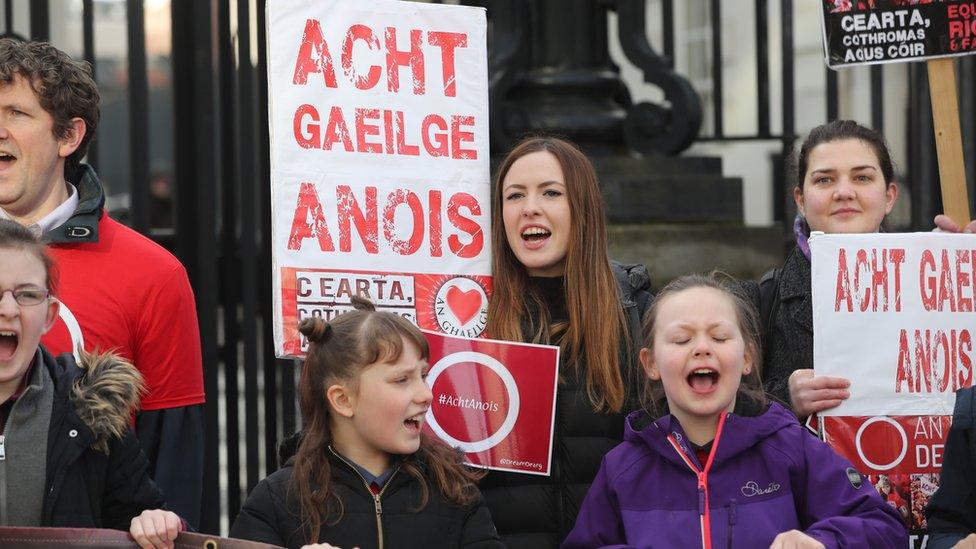
The call for an Irish language act has been a key sticking point
The draft deal says there is to be "meaningful reform" of the petition, which would be "reduced and returned to its intended purpose" and would "only be used in the most exceptional circumstances and as a last resort, having used every other mechanism".
The proposed deal would see legislation created for the appointment of both an Irish language commissioner and an Ulster-Scots commissioner.
Earlier in the week, the Orange Order reiterated its opposition to a standalone Irish language act.
But Mrs Foster argued that the new deal was "an entirely different construct to what was suggested before".
Questioned on BBC Radio Ulster's Nolan show about whether a unionist veto around the Irish language was included in the small print of the draft document, DUP chief whip Sir Jeffrey Donaldson said standards "set for the use of the Irish language have to be agreed by the first minister".
"That does mean the DUP will have a very important and crucial say in how those standards are drawn up and what they will be," he said.
In a statement on Thursday night, Sinn Féin President Mary Lou McDonald said her party was "studying the text and will give it careful consideration".
"The Sinn Féin Ard Chomhairle will meet tomorrow to fully assess it," she added.
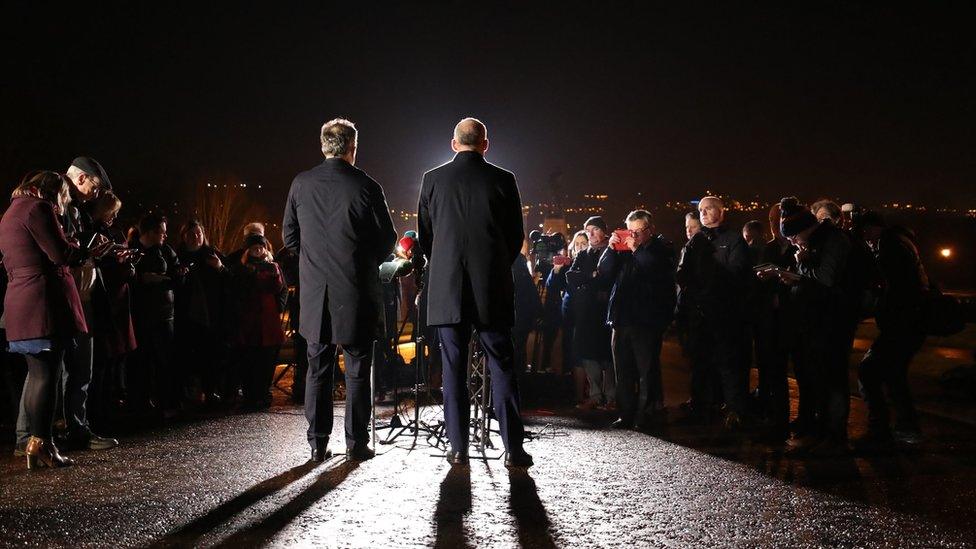
Mr Smith and Mr Coveney brief the press on the deal
Mr Smith said the deal will transform public services and restore public confidence in devolved government and asked all parties to support it.
The secretary of state said accepting the deal would also bring about the parties' commitment to immediately ending ongoing industrial action by healthcare staff.
The proposed deal also makes provision for a number of long-standing demands of environmentalists, including the idea that a new Programme for Government would see a separate climate change act for Northern Ireland - the only part of the UK without such legislation.
- Published10 January 2020
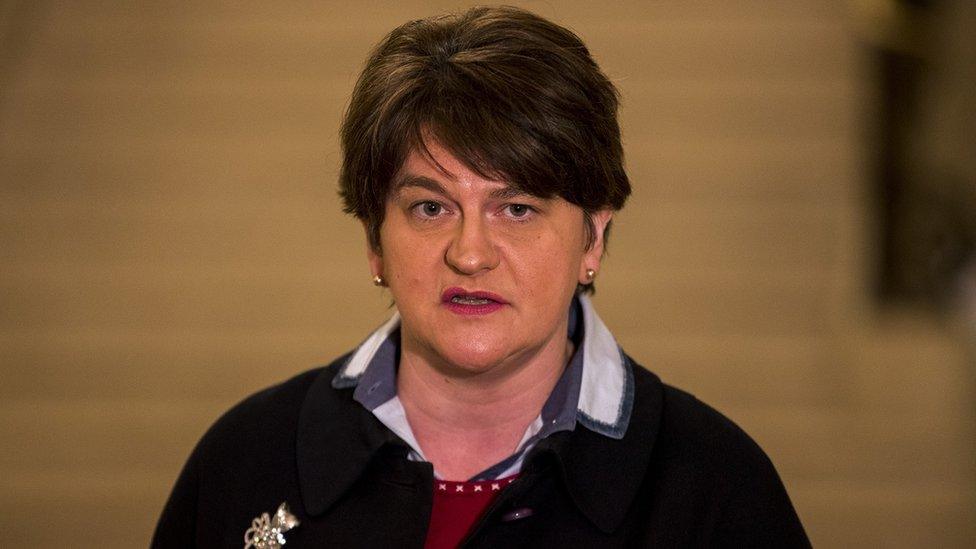
- Published10 January 2020
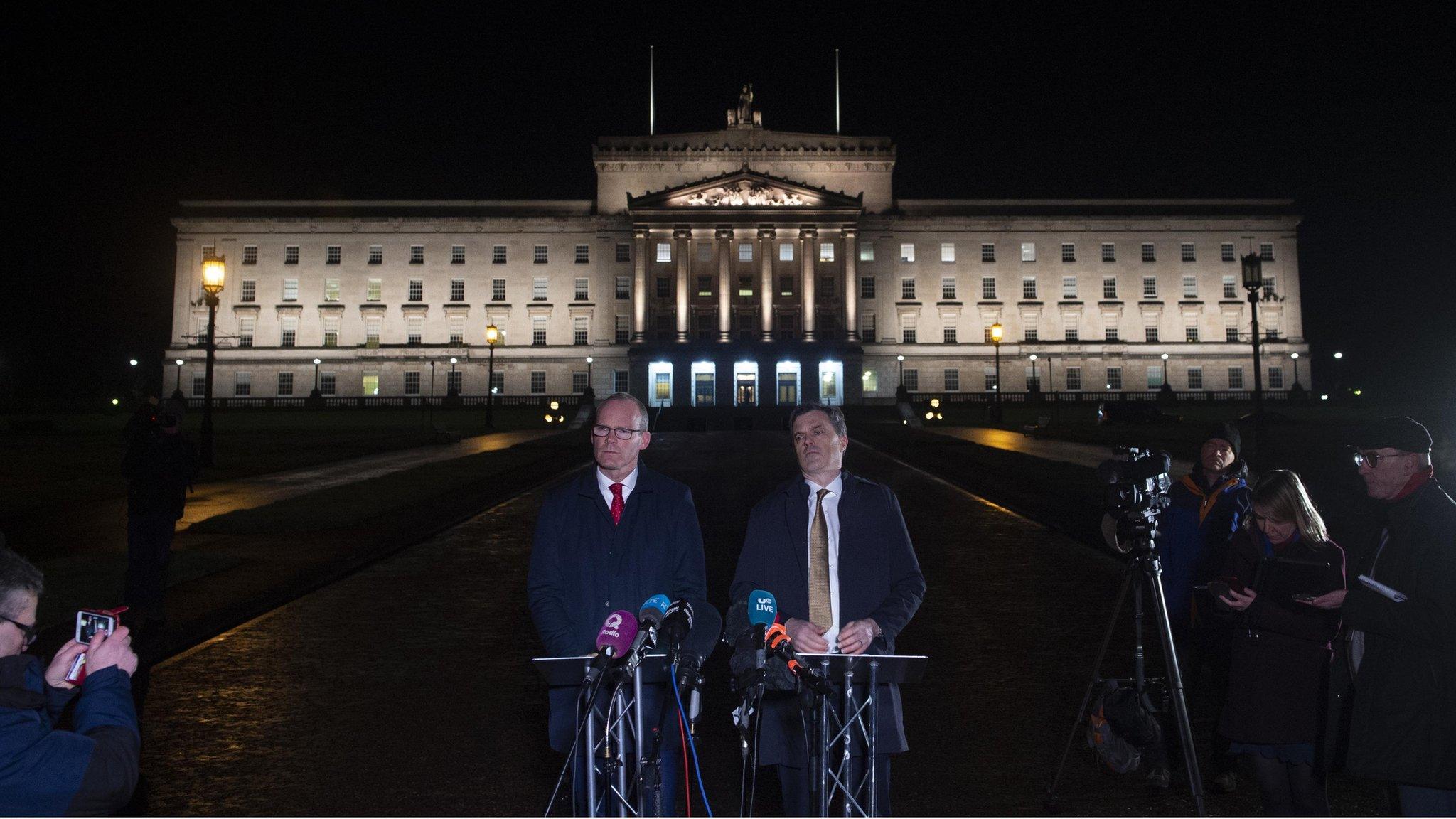
- Published9 January 2020
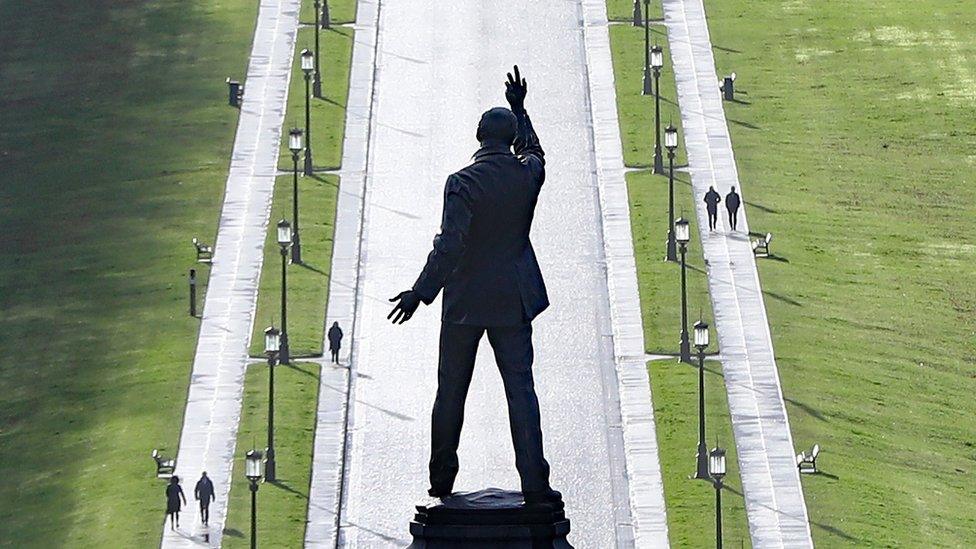
- Published10 January 2020
